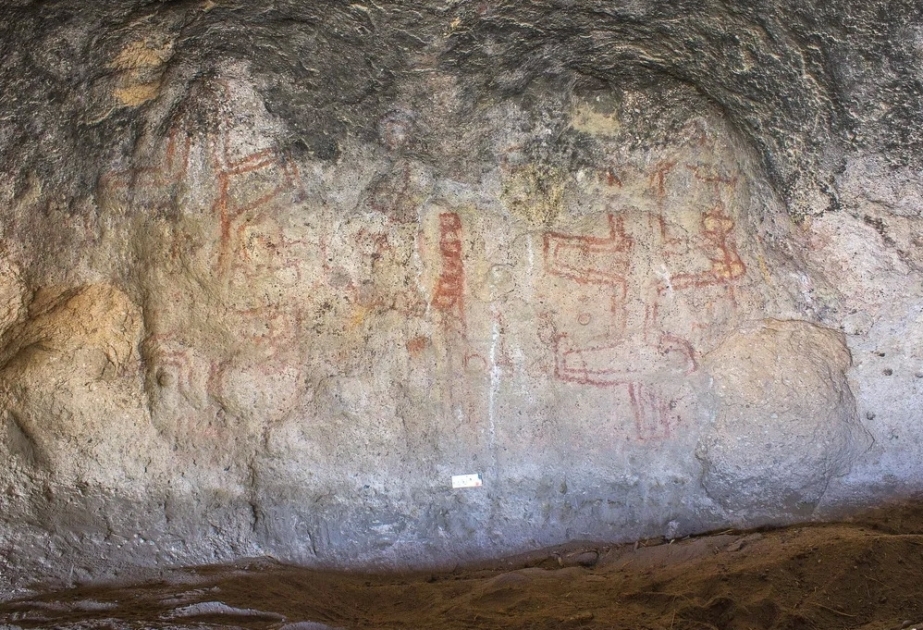Archaeologists have discovered the earliest dated cave paintings in South America in Argentine Patagonia, dating back 8,200 years, according to CNN.
The 895 paintings were found by Argentine and Chilean archaeologists in the Huenul 1 cave, a 630 square meter (6,781 square foot) rock shelter located in the province of Neuquen, some 1,100 kilometers (684 miles) southwest of the capital Buenos Aires.
“We were able to date four black peniform patterns that were drawn in charcoal. These proved to be the earliest direct dating of cave paintings in South America,” said Dr. Guadalupe Romero Villanueva, author of the research published in the Science Advances journal.
The Argentinean archaeologist said the discovery indicates that the production of cave art began in the Huenul cave about 8,000 years ago and that the practice of painting the particular pattern seen in the cave was sustained for a period of at least 3,000 years.
The discovery provides evidence of the artistic ability and cultural transmission of the hunter-gatherer societies which inhabited the region during the middle Holocene, a period roughly from 7,000 to 5,000 years ago, and reveals the socioecological resilience to climate, as well as serving as a means of communication between scattered populations.
“We believe these images in particular were part of a resilient response of the mobile hunter-gatherer groups that occupied this cave and the desert environments of northern Patagonia to the climatic challenge of a period of extreme dryness that occurred during the middle Holocene,” said Romero Villanueva, a researcher at the National Council for Scientific and Technical Research of Argentina.
Villanueva said there are other places in South America that could have older cave paintings, but which only have relative dating, like Argentina’s Cueva de las Manos, with cave paintings dating back 9,500 years.


















